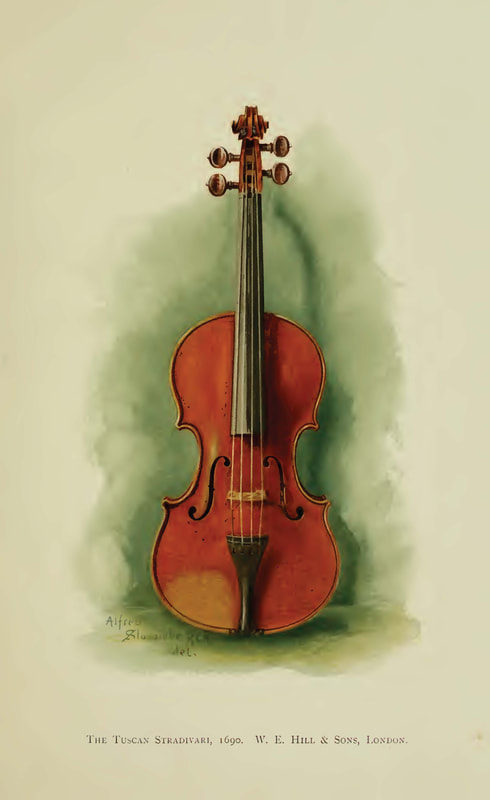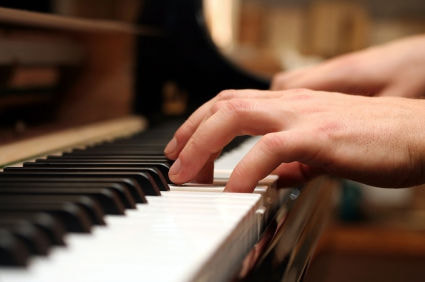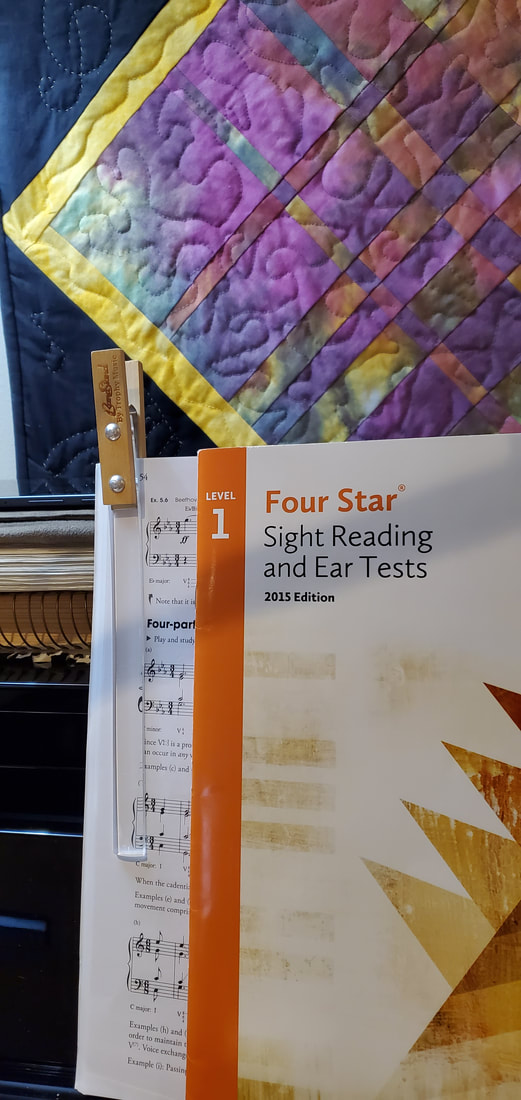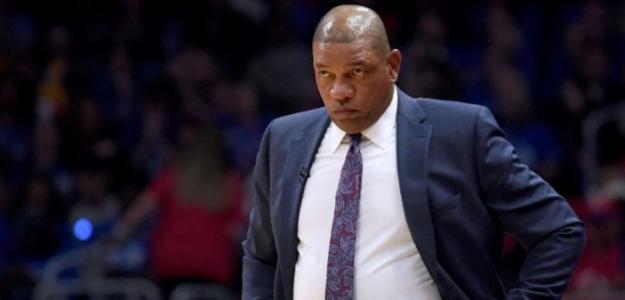|
My wife is preparing for your Grade 3 violin exam. She asked ChatGPT about preparing for the big event. Here are the results.
Hi ChatGPT. What are your recommendations about preparing for a practical violin exam? ChatGPT. Here are some general recommendations for preparing for a practical violin exam:
Wow, the advice is solid. However, a few things are missing. 10. Listen to professional recordings of your music. This is a proven method employed in the Suzuki music methods. Students need to be able to recognize an incorrect note(s) in their playing. The advice is all old school except for step five. David BTW, my wife is a professor of education who writes on Ai.
0 Comments
David Revised August 2022  Heather Lotherington 13 December I took up the violin in early summer 2018. I reckoned I would get a running start on a bucket list project. But let’s fast forward a couple of years, past the commitment of buying a violin and a sustained period of caterwauling that inspired the neighbor’s dog to howl, past the perpetual state of terror at lessons, a wretchedly inflamed shoulder, constant and unending frustration, and perpetual tweaking of violin, shoulder rest, chin rest, bow to find a position where this instrument felt even quasi-comfortable. Let’s begin instead a few months into Covid lockdown when I reconnected with my violin teacher and we resumed lessons on Zoom. After brushing up my basic skills, I thought I might sign up for the Royal Conservatory of Music program to provide structure to my learning. We embarked on the preparatory level violin curriculum, and emboldened, I booked an exam date. My available practice time was limited by full time work (on Zoom), which, on some days, wiped me out past even starting the depressing regimen of hit and miss scales. But motivated by a fear of making a total ass of myself in front of an examiner accustomed to 5-year old’s capable of mastering this content, I practiced. I pushed onwards, I stretched, I recorded myself and self-critiqued, I watched superstar violinists on YouTube, and listened attentively, studying how they held their violins and their bows. I practiced with my husband playing the piano or the ukulele, I played to recorded tracks, I sent video-recordings to friends and family. Mostly they were encouraging; a few were incredulous that I would undertake such a project at my age. But why not? A month before the examination my nerves started getting the better of me, so I intensified my practice time on weekends, bearing down on my scales and arpeggios, determined to get my fingers in the right place for each note. A millimetre up or down the string produced disharmony, yet there are no guiding frets on a violin. I practiced as deliberately as I could: open string bowing, scales, arpeggios, get that fourth finger in place ahead of time! My teacher advised me to focus my attention on one piece at a time, but sometimes I drifted off to picking out tunes by ear or playing old favourites from the early days: Mary had a little lamb, Twinkle, twinkle little star... I decided to do a mock exam with my teacher during lesson time. It was humiliating. The week before the exam, my pieces were running on a constant loop in my head. I practiced my fingering while I slept, when I slept, which was seldom and badly. I practiced maniacally. I worked out every kink in continual mock Zoom exams, doubling down on the bits I messed up. Two days before the exam, a curious sense of calm descended. Out of nowhere, I felt that I had learned the elements of preparatory violin, and performance of these basics was up to the vicissitudes of exam performance where, of course, anything can happen. I had memorized my repertoire pieces and, though not necessary, my étude. My scales were on autopilot. I needed to credit myself with accomplishment of this basic learning and damn the torpedoes. I was ready for the exam. The morning of the exam, I ran around in circles preparing: my violin needed to be acclimatized to the humidity of the basement. The piano and the violin had to be tuned exactly in pitch. Was there enough resin on my bow? My husband and I practiced our simultaneous piano and violin start: an audible sniff, and tally ho. I entered the zoom waiting room nervously. We were being recorded though no one was there. And suddenly there she was: my examiner presented a friendly face. I silently thanked the heavens above that I had been spared a hangman. Decades of examining graduate theses and dissertations had taught me that best performance in a tense examination situation was facilitated by an encouraging tone and not by a repeat of the Spanish Inquisition. All the same, my fingers trembled, my sweat glands went into overdrive, and I forgot how to breathe. I did remember to smile and to play with the conviction my teacher had taught me to show. There were to be no faces pulled, indicating disappointment or frustration, and if I made a mistake, I was to make it with pride and immediately move on. I began with my scales, and true to practice, practice, practice, they rolled off just fine. My teacher had told me to sing to my piece called (appropriately), Song: make up words, create a story and tell it in music. She told me to play what I heard in my head not what I produced with my fingers. So, I did. My étude began a little flat but it had spirit. My favourite beautiful slow song scrolled in my head, and I played as if that were me. My fast piece, the last in my program, was intended to be humorous, and it flowed with relief. It was the very final note in the exam that I blew, probably because I knew I was nearly done. I heard the ear test note perfectly but by that time, my flustered fingers just missed the spot. It was almost funny. And the exam was over as suddenly as it had begun. It had taken 7 minutes. In the academic sphere in which I work, I am not a fan of examinations, which create a ceiling as easily as a floor and encourage parroting of known standards rather than innovative thinking. But I was surprised by the excitement I felt taking a preparatory level violin examination. Learning the violin is qualitatively different from the cognitive learning I work with. Playing the violin is deeply embodied, requiring the player to learn precise physical skills to communicate with an instrument. There is no music without mind, body and instrumental medium working in concert. My mark—not yet received—now seems immaterial. I sensed that my performance was a pass for this level of accomplishment, and I could now pursue the next level of play. The basics I so fervently argue against in public education (which has developed over the past 200 years past the horse and buggy era) indexed something else in violin: an ability to perform skills enabling me to proceed to more complex embodied music making. I could now move into level 1 learning. And that is where I am now: learning the D harmonic minor scale and playing 2 octaves of the G major scale. Woohoo! I was the proud accompanist for Heather, my wife.
David It is two months before the big date. What do you do? How do you practice?
Some thoughts:
David I had a date for the Grade 10 exam, a few months out. Whoa! Piano thoughts dominated my waking hours for the next 90 days.
First thing I learned? Thinking about piano is a form of practice. In my mind I saw myself performing the music. My mind sought solutions to tricky parts I saw coming in the music. I was excited. Second thing I learned? A firm date quickly eliminated procrastination. Third thing? This was really exciting. As Los Angeles Clippers’ Doc Rivers said, "pressure is a privilege". This was real, this was difficult, but this was doable with focused effort and lots of practice. Fourth thing? I started to listen in earnest to both professional recordings of my program and myself. Record, play, listen became my method. I'd learned how to practice. I nailed it and won a scholarship for the highest mark in my district. David How much effort will it take? Depends on:
What result are you looking for? Extraordinary results take extraordinary effort. Levels 1-3 plan on 30-45 minutes a day, more near exam time. Levels 4-6 45 minutes plus Levels 7-8 60 minutes Levels 9 -10 90 minutes plus It's like preparing for the Boston Marathon. This is on the piano bench. Add more time for theory and guided listening. How big is your or your child's desire? Realistically it should be high. A healthy mix of intrinsic and extrinsic motivation is needed. What piano skills are you bringing to the project? Please let me assess your skills before you make decisions. Sometimes transfer students, new to my studio, ask me to help them prepare for exams way above their current skill level. I may recommend some preparation to preserve your enthusiasm and my sanity. Have you done this before? Then you know what is in store. If this is a new adventure, let's talk. Here is my personal experience. I completed levels 10 and then the ARCT from age 43 through 47. It was by far the most exciting thing I've ever done at the piano. Remember, I had 25 years of professional experience behind me in commercial and jazz performance. I didn't play classical music or take exams as a child; I went straight to the band stand as a teenager. Classical piano was new to me as a formal study, though I had a love of the music, went to concerts etc. It was also the most time-consuming activity of my adult life. About 5000 hours over a four-year stretch. The results earned me national, provincial, and local scholarships. That was a surprise. Completing Berklee College of Music as a young man was easier in comparison. I had no idea an ARCT took so much. Would I do it again? In a heartbeat. Do I recommend the experience? Yes, it truly is a peak experience. I felt like superman for years afterwards. Are your practice skills Up-to-date for 2020? We do not grind anymore. Ask me, I help you get organised for success. Recommended books: David  Building a program is selecting the pieces for your exam. Here is an ideal situation:
Best of luck, David Ear training gives you the ability to conceptualise what you hear, nothing more. There are countless phone apps, YouTube videos, and social media hustlers, and books promising results in short order. Unless you are in possession of perfect pitch and deep prior experiences listening to music, this will take some time. I am 48 years in. I am still working on it.
Ear Training for Classical Musicians
If I can help you, call me. David Story |
You've got to learn your instrument. Then, you practice, practice, practice. And then, when you finally get up there on the bandstand, forget all that and just wail. AuthorI'm a professional pianist and music educator in West Toronto Ontario. I'm also a devoted percussionist and drum teacher. Categories
All
|


 RSS Feed
RSS Feed